Rescuer or Kidnapper?
A Warning to Good Samaritans as Baby Birds Begin to Fledge
The arrival of spring has brought more baby birds into Currumbin Wildlife Hospital, and vets are reminding community members to act wisely when they come across a baby bird in distress.
Spring and summer arrivals
The warmer months are the busiest for baby bird admissions at Currumbin Wildlife Hospital. This is because storms can cause baby birds to be blown or knocked from their nests.
However, this is also the time when baby birds begin to fledge and leave the nest. At this stage, the baby birds will have weak flight and can spend up to a week on the ground with the parents feeding and caring for them. While some fledglings may become sick or injured and need help, well-meaning people often kidnap young birds who do not need assistance.
When should I bring a baby bird to Currumbin Wildlife Hospital?
It’s important to know when a baby bird should be brought into hospital for treatment, to avoid mistakenly removing a healthy bird from its environment.
If you come across a baby bird that you think might need help, call Currumbin Wildlife Hospital or your local wildlife rescue group. They will ask you questions about the bird’s behaviour and appearance and advise whether the bird needs to be brought in for treatment.
When you call, make sure you provide an exact location of where the bird was found. This information is critical so that Currumbin Wildlife Hospital’s vet staff can successfully reunite the baby bird with its mum.
What happens when a baby bird is brought into Currumbin Wildlife Hospital?
When a baby bird is brought into Currumbin Wildlife Hospital by a community member, vet staff will treat the bird if it is injured. Reuniting the bird with its mother is a high priority, and this process is done as soon as the bird can be discharged from the Hospital. So far this year, Currumbin Wildlife Hospital has been able to reunite up to 70% of baby birds with their parents, depending on the species.
Currumbin Wildlife Hospital Senior Vet Michael Pyne says, “There is a myth that baby birds won’t be accepted by their parents if they have been touched by a human, but this is not true. We can successfully reunite a baby with its parents, sometimes up to two weeks after separation.”
What we do…
Currumbin Wildlife Hospital works to treat, rehabilitate, and release sick, injured and orphaned wildlife, providing a service that is free to the community. The Hospital relies on the generousity of donors to continue its mission to ensure that our beautiful native animals can be enjoyed for generations to come.
